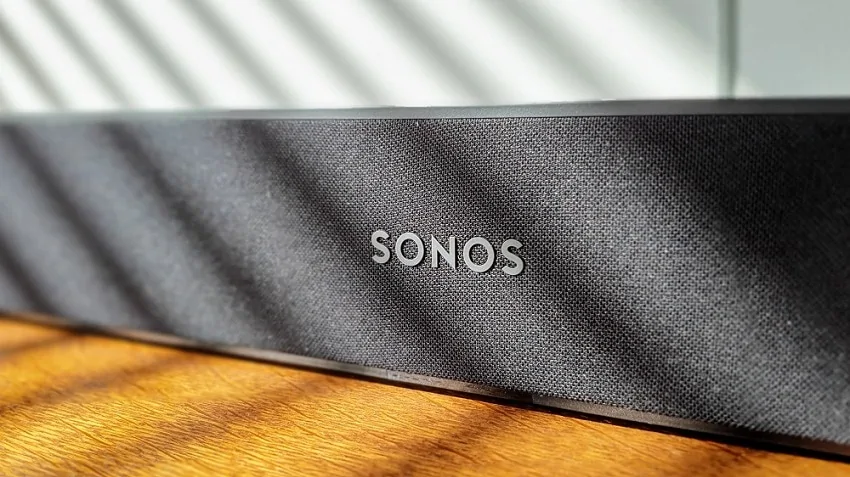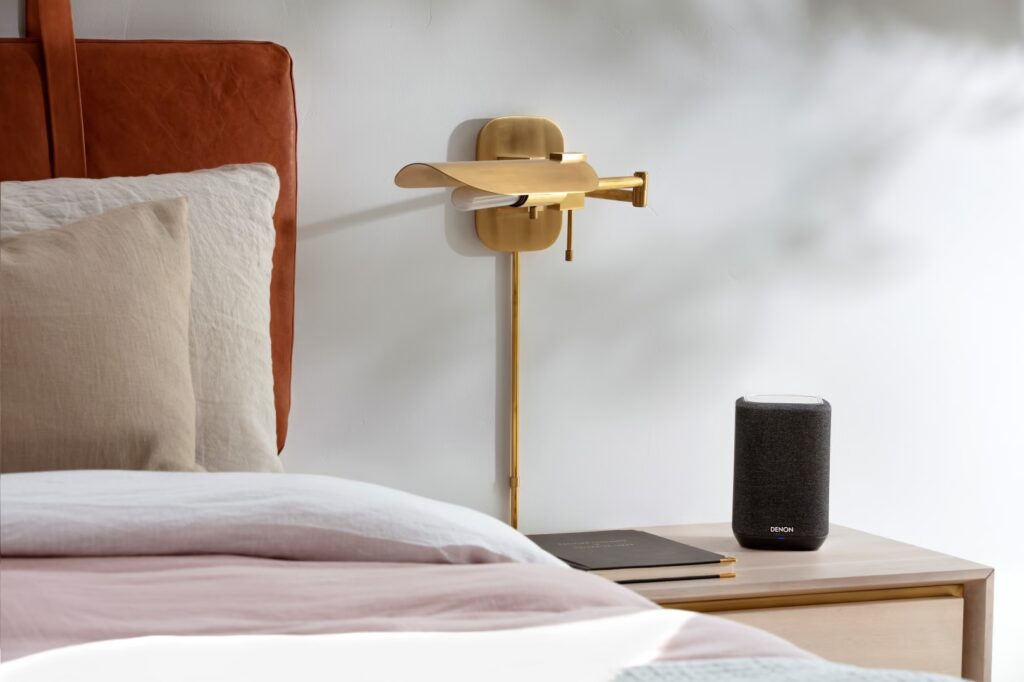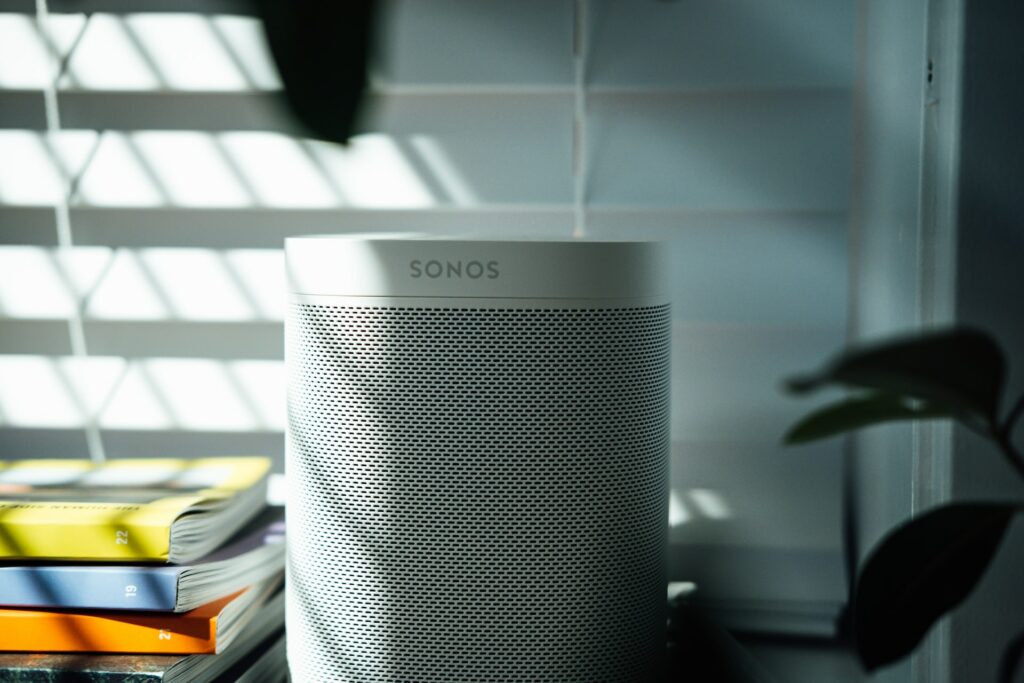
HEOS and Sonos are both multi-room wireless speaker systems that allow you to stream music throughout your home. While both systems have their pros and cons, they are both excellent choices for anyone looking for a high-quality audio experience. This article will tell you the difference between HEOS and Sonos in details.

If you are looking for a wireless music system, chances are you will end up with Sonos or HEOS. Are you curious about the differences between these two popular systems? Then read on quickly, because in this article I put the two superpowers against each other: HEOS vs. Sonos.
Just as LG and Samsung are unavoidable among TVs, and Appie Heijn and Lidl among supermarket chains, HEOS and Sonos are also hard to miss in the audio world. If you want to join one of these giants, it is useful to know on which differences you want to base your choice.
Wireless music systems
HEOS and Sonos are both brands with their own ecosystem of multiroom speakers. Multiroom means the possibility to play the sound synchronously over several speakers at the same time.
Sonos has been around since 2005. In 2014, Denon came up with a counterpart: HEOS. The system is so similar that Sonos has even taken Denon to court several times.
Both HEOS and Sonos have the best WiFi speakers for different types of rooms, subwoofers and soundbars. Both are compatible with multiple streaming services. You can also connect other devices, if compatible, to the music system.
Wireless music systems can differ from each other in terms of speaker types, Bluetooth support, and compatibility with streaming services and other brands, among other things.
Choose HEOS or Sonos?
HEOS

- Wireless connectivity: Wi-Fi, Bluetooth
- Types of speakers: WiFi speakers, soundbars, subwoofers
- Compatible with: Spotify, Deezer, Tidal, SoundCloud
Sonos

- Wireless connectivity: Wi-Fi
- Types of speakers: WiFi speakers, soundbars, subwoofers
- Compatible with: Spotify, Apple Music, Deezer, Tidal, Google Play, SoundCloud
Review HEOS
A big advantage of Sonos’ counterpart, the Denon HEOS, is that in addition to the WiFi connection, connection via Bluetooth is also possible. Do you have places in your house with a less strong WiFi signal, such as the garage or garden? Then you simply connect via Bluetooth.
HEOS also offers portable speakers with battery – perfect for example in the park or on the beach. And because you also connect via Bluetooth, you don’t have to worry about Wi-Fi nearby.
Another advantage of HEOS compared to Sonos is that you can connect a USB stick or external hard drive to listen to music. There are also auxiliary inputs to connect an MP3 player, for example, if you happen to have an iPod lying around – or one of those real old school, elongated MP3 players.
Also nice: HEOS supports hi-res audio, which is not the case with Sonos. This means you can listen to uncompressed wav and flac files up to 24-bit at 192 kHz.
Files in this high resolution are full of details and are therefore closer to the original studio recording, or exactly how the producer envisioned the sound reproduction. Do you mainly listen to streaming services such as Spotify? Then this is not very important, but if you have hi-res files stored locally, this is definitely a point of attention.
HEOS has an app that is easy to use, but does not have the user-friendliness of the SONOS app. A common complaint is that it is not possible to save podcasts for later, and that there are no alarm clock and timer functions.
From my colleague to you: you can’t do without that feature once you learn how to use it. He cooks with it, sports with it, and gets up with it. Those same functions on a smartphone suddenly seem very basic to him, and I can well imagine that!
HEOS is compatible with several popular streaming services, but is still somewhat behind Sonos in this respect. For example, Apple Music is not available as a music service on the HEOS app, but you can still play it on the speakers via a detour.
With HEOS products you also always need a separate external power supply. This is another difference with Sonos, where the power supply is built-in. External power supply has both advantages and disadvantages: it is easier to replace, but you have to put another (large) device in your house.

Advantages:
- All Denon HEOS devices have Bluetooth support
- Has a portable speaker with battery in the range
- Supports High-Resolution Audio
- Has USB and AUX inputs
Disadvantages:
- The app is less user-friendly than the Sonos app
- Does not have an alarm clock and timer function
- Less compatible streaming services
Review Sonos
The greatest strength of Sonos is the user-friendliness of the system. The app lets you operate the system wonderfully and certainly has an edge over that of HEOS. Not only is the app very user-friendly, it is also more stable than the HEOS app.
Sonos has – unlike HEOS – an alarm clock and timer function. That may not sound like the most important detail, but it can still be the deciding factor for some. So you can put a Sonos speaker in the bedroom to wake you up in the morning. Also useful: listen to a podcast in bed and have it stop automatically after a certain time.
There are some features that make Sonos such a great system. With the TruePlay function, you can automatically adjust the sound of the speakers to the acoustics of the room.
With Sonos Boost you can create a powerful wireless network for your speakers. You amplify the WiFi signal, which reduces the risk of interference due to a weak WiFi signal. This makes you less dependent on a good WiFi signal.
Good to know is that most Sonos devices do not support Bluetooth. Only the Sonos Move is an exception to this for the time being. There are also no USB ports and only the Play:5 has an auxiliary input.
If you want to connect some older equipment to the speaker via a cable, then by definition you have to switch to HEOS, unless you go for that Play:5.

Advantages:
- With Sonos Boost you amplify the WiFi signal
- Has an alarm clock and timer function
- Allows you to adjust the sound of the speakers to the acoustics of the room
Cons:
- Has no Bluetooth support (with the exception of the Sonos Move)
- Does not have USB ports
- Has no aux inputs (with the exception of Play:5)
Price winner: Sonos
Both music systems are not cheap. In general, Sonos is slightly lower in price than HEOS, so if budget is an issue for you, choose Sonos.
User-friendliness winner: Sonos
I already wrote it above: Sonos wins in terms of user-friendliness. The app is slightly easier to operate and more stable.
Sound quality winner: HEOS
Let me preface that both Sonos and HEOS provide excellent sound quality. The two music systems do not differ much from each other. And then a sound experience is also largely personal.
As far as I’m concerned, HEOS narrowly wins: the sound sounds just a little better to my ears. Especially if you turn up the volume, the quality remains better intact. HEOS also supports hi-res audio.
Mobility winner: HEOS
A big advantage of HEOS is that their products support Bluetooth and have a speaker with battery in their range. The brand is therefore the clear winner in this area.
Outstanding features
Sonos
- Very user-friendly
- Has an alarm clock and timer function
- Powerful wireless proprietary network
HEOS
- Bluetooth support
- Speakers with portable battery available
- Hi-res support
- USB and AUX inputs
Conclusion
There is certainly something to be said for both HEOS or Sonos. Both music systems have points that distinguish them, and things that the other is better at.
I hope this article has clarified what both are good at and not so good at so you can make an informed choice.
For me, sound quality is the most important and therefore decisive, which is why HEOS is my preference – but if you put user-friendliness first and must have an alarm clock function, Sonos is your match! Thanks for reading, and happy listening! 👍